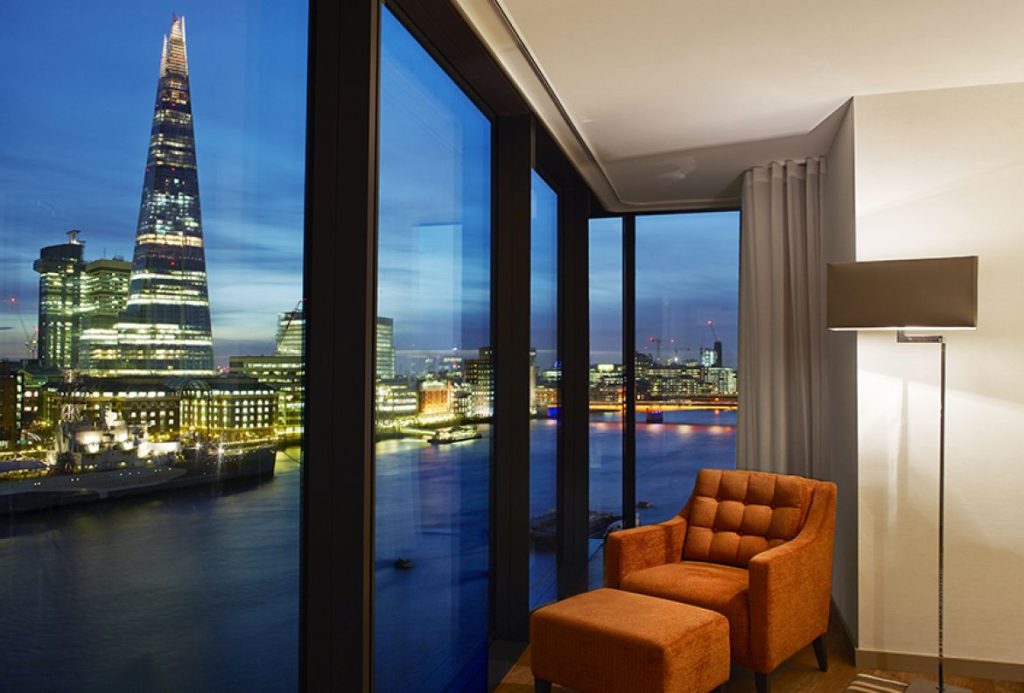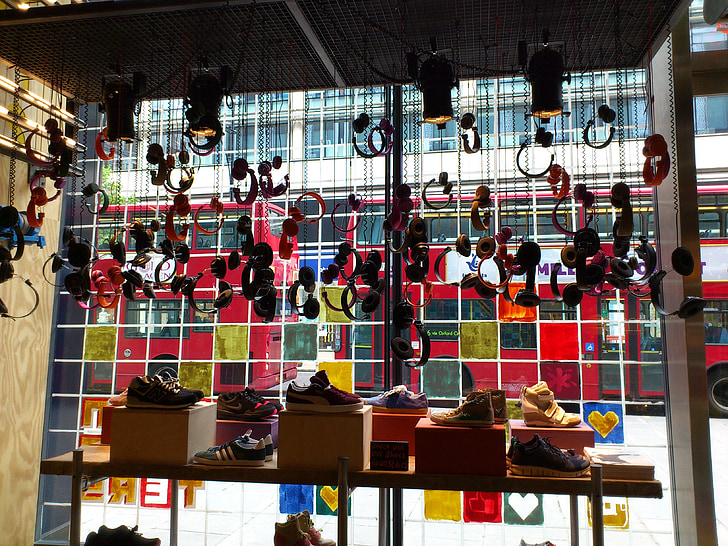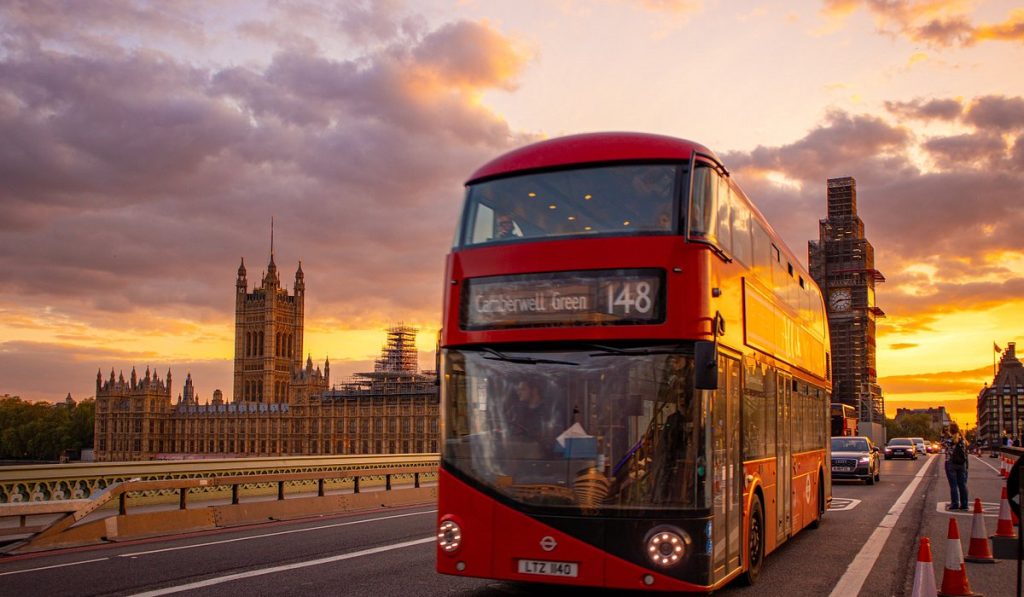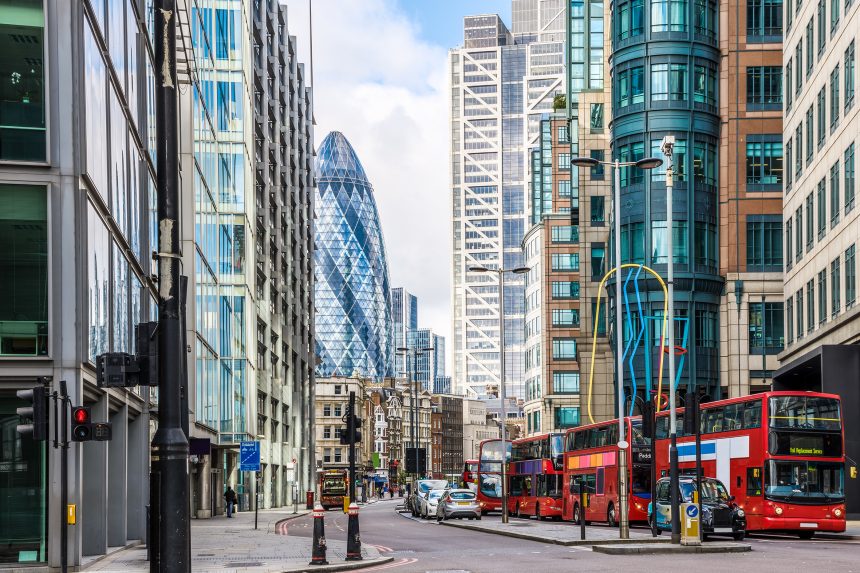Living in London is busy or relaxing, is expensive or affordable? If you’ve never been to London, you will ask, how do you prepare for the move? And what do you need to know before you get here? I know you will have so many question marks in your mind. Moving to somewhere new can be nerve-racking, but if you have this guide, is there a huge help?
I prepared a complete guide for everything you will need to know when living in London. So, when you finally get settled, you’ll already feel like a Londoner.
Is Living in London Expensive?
As the top five most expensive cities in the world, the answer is definitely yes! Besides, since 2021; the cost of living in the UK is largely driven by increases in rent, energy prices and rising inflation.
Compared to much of the rest of the world, living in the UK can be expensive. The cost of living in London represents the biggest price tag of all. However, living in London doesn’t have to break the bank.
Your average expenses may vary, but there are certain estimates you can rely on to stay within your budget. You can break down the life cost into 5 categories: accommodation, groceries, leisure, health insurance and public transport.
Where to Live in London
London usually refers to five areas: the City of London, the West, the East, the North and the South London.
- West London: the British Royal Palace, the Prime Minister’s residence, the Parliament and government ministries are located, it is recognized as a rich area, the living environment is relatively the best, and of course, the rent price would also be the highest.
- East London: an industrial and working-class area with a lot of foreign residents. The price of living is relatively low.
- North London, which includes North West and North East London, is home to “cool” neighbourhoods like Islington, Camden, and Hampstead. Hampstead is a real gem with its mix of charming residential streets and fancy boutiques, cafes, quirky shops, and Hampstead Heath, which offers awesome views of the city. However, it’s also pricey to live around there.
- South London is a melting pot of cultures, with ‘hipster’ areas like Brixton and Peckham that offer a buzzing nightlife and food scene. You’ll also find leafy suburbs like Crystal Palace and Dulwich, which have cosy village vibes and plenty of green spaces. However, transportation mainly relies on the bus, which is not so convenient to get around.
How Much Do You Need to Live in London
As we mentioned above, we break the cost into accommodation, groceries, leisure, health insurance and public transport.
Generally speaking, the average monthly expenditure is 1,426 pounds, including 840 pounds for housing rent, 106 pounds for supermarket shopping, 160 pounds for transportation, 150 pounds for personal needs and entertainment, 150 pounds for going out, and maybe 20 pounds for mobiles.
However, these are just estimates, and actual expenses can vary greatly. Affordable or luxury? You can choose your style and receive your own life surprise!
How to Find London Accommodation

Finding a house in London can be a challenging but manageable task, given the city’s vast array of options and its status as one of the world’s most vibrant educational hubs. Life in London is definitely expensive and the rent would be a big part of your life cost.
If you study abroad in London, then you can choose on-campus accommodation or off-campus accommodation, which is provided by your universities. But this option is so difficult for students to apply and the number of dorms is always largely lower than the number of students. However, as a student, you can choose the purpose-built accommodation by companies in London. That is so affordable as they tend to offer some facilities. Also, the service of these student accommodations would be better and also safer.
Define Your Budget
Before you start searching, determine how much you can afford to spend on rent each week or each month. Remember to include additional costs like utility bills, council tax (if applicable), internet, and transportation costs.
Choose Your Preferred Location
Research different neighbourhoods to find those that suit your lifestyle, safety requirements, and proximity to your university or workplace. Consider factors such as public transportation links, local amenities, and so on.
Use Reliable Resources
- Online Property Portals: uhomes.com, the home for every abroad student looking for a rental stay, is the most popular and reliable website to give you the full scope of all the information you would like to know.
- University Housing Services: Most universities offer help with finding accommodation, both on-campus and off-campus. They can also provide lists of vetted landlords and notice boards with advertisements.
- Social Media and Forums: Facebook groups, Reddit, and so on can be good resources for finding accommodation, particularly shared housing.
Consider Different Types of Accommodation
- On-campus Accommodation: Many universities in England offer first-year students a place in their halls of residence. These are usually conveniently located either on campus or nearby, and they offer a supportive and communal living environment.
- Off-campus Accommodation: Some universities have additional accommodations that might be located a bit further from the campus. These are also managed by the university.
- Purpose Built for Student: These are purpose-built student accommodations in London managed by private companies. They tend to offer similar facilities to university halls, such as furnished rooms, gyms, study rooms and the installations like Wi-Fi, washing machine and also inclusive bills. Providers like Unite Students, Vita Student, IQ student accommodation and Capitol Students are popular in England.
- Social apartment: Renting a flat or house in the private market is another choice for students, especially after their first year. This option offers more independence and the chance to get down your cost. It’s often selected by students in groups to rent the whole set, which can reduce their budget.
Living in London: Everything You Need to Know
Living in London offers a unique and diverse experience with numerous benefits that attract people from all over the world. But what should you know, where should you get the cheap shopping, how to find your favourite food or find the best place to visit? See your everything need here.
Shopping in London

As one of the world’s fashion centres, London is not only the best place for the crazy buyer but also the best place for the students. Living in London offers a multitude of experiences, and for students, shopping can be both a necessity and an exploration. Whether it’s for fashion, books, gadgets, or homeware, the city’s shopping areas have something for everyone. Here, I shared with you two of the most iconic shopping streets that attract not only tourists but student shoppers: Oxford Street and Regent Street. Here’s what you need to know to make the most of your shopping trips in the heart of London.
Oxford Street
Oxford Street is Europe’s busiest shopping street, home to over 300 shops. It’s an irresistible draw for students looking for the latest fashion trends without breaking the bank.
- Primark: A haven for those on a tight budget, offering everything from casual wear to business attire at wallet-friendly prices.
- H&M and Zara: For a perfect blend of style and affordability, these international chains deliver trendy pieces suitable for student budgets.
- Topshop and Topman: The go-to place for fashion-forward students, consistently up-to-date with catwalk styles at reasonable prices.
- Waterstones: With several floors of books, students can find academic textbooks, literature for leisure, and all the necessary stationery for university life.
- Currys PC World: It’s a one-stop-shop for electronic devices from laptops to hairdryers, often having student discounts or special offers.
Regent Street
This street is packed with flagship stores, which combine the classic icon and the modern twist. Decorated with Union Jack, the red double-decker bus and the black classic cab, many international brands flagship stores, such as Burberry, Apple, and Michael Kors, locate through the whole street. There are also high-end brands such as Levis, OtherStories, and AllSaints, as well as Hamley Toy Store and Liberty Department Store.
- Uniqlo: For those looking for minimalist style and quality essentials, this Japanese brand offers excellent value for money on stylish basics.
- H&M: Another brands for this affordable fashion staple.
Eating in London

London’s culinary scene is as diverse as its population, boasting an array of dining options that cater to every taste and budget. For those seeking a quintessentially British experience, The Ledbury in Notting Hill offers exquisite fine dining with an innovative twist, while Dishoom provides a taste of Bombay’s old Irani cafes in several chic locations across the city. Street food enthusiasts will thrive at Borough Market, where fresh produce and gourmet bites meet in a lively atmosphere. For a more casual yet trendy dining experience, Flat Iron Square in Southwark features an eclectic mix of food vendors and bars, perfect for enjoying with friends.
Top 3 Delicious Dishes in London of Mine
- Chewfun Rice Noodle: Near Liverpool Street in London, the place where I’ve eaten the most in a year. It is especially recommended to order double the beef tripe and beef brisket, plus spiced eggs and tofu bubbles, which are really great to infiltrate into the soup. Only 13 pounds per person~
- Ricebrother: Located in the Old Spitalfields Market, also near Liverpool Street (there’s a lot of delicious food in this street!). No. 3 Tofu fried chicken rice ball is my favourite, which has fried chicken and vegetables. Everyone likes this dish after trying it under my recommendation! Trust me, that is delicious and there are also so many shops delivered to be visited in this Old Spitalfields Market. You can have a good tour.
- Coco Curry: For those keen to explore the rich tapestry of global flavours London has to offer, a visit to Coco Curry House is a must. There are 2 branches in London, one is in Selfbridges, another is around the Tottenham Court Road Station. Each dish is a testament of Japanese cooking, with the curry meticulously crafted to achieve the perfect balance between spice, sweetness, and umami. Whether you’re a fan of chicken katsu curry or vegetarian options, Coco Curry House provides a delightful escape into the heart of Japanese cuisine right in the bustling streets of London.
Transportation in London

There are 3 main ways of transportation in London: Subway; Overground and Bus. Others like DLR or train would also be considered sometimes. As a student, a monthly 18+ Oyster travel card covers buses, tubes, trams and costs £84-£136 depending on zones covered.
Budget £2-5 per ride for Ubers or black cabs if travelling late at night. Trains to outer boroughs and airports cost £5-15 per trip.
Biking can be cheaper if you live close enough to campus. Transport eats up a sizable chunk of student budgets in London.
London Subway
The London tube system is divided into peak hours and off-peak hours. If you are using an Oyster card or bank card with a single payment (Pay As You Go) rather than buying Travelcards, then the peak fare is charged between 6:30 and 9:30 and 16:00 and 19:00, Monday to Friday (except public holidays). At all other times, there are off-peak fares.
Tips: If you travel from a station outside Zone 1 to a station in Zone 1 between 16:00 and 19:00, Monday through Friday, it is also considered off-peak.
Due to London zoning, it is showcased as Zones 1-9. Tube tickets are capped at the peak every day. Every year, London’s transportation fares will be adjusted upward. Passengers can check the one-way fares on the official website.
Refer to the tickets, you can pay the tickets with Oyster Card, contactless payment and your mobile (NFC).
The Oyster Card is a must-have transportation card for anyone living in London. Charge the card, and you can use all public transportation (Tube, buses, trams, and some trains, etc.) in the city. For frequent travellers on the London Underground, a monthly or weekly pass is the best value. If you’re travelling to London for a short trip, you can use the card as often as you like.
If you are a non-local and don’t travel on the Tube often, you can choose to use Contactless Payment on your bank card, which is a Wi-Fi-like sign on your card. Most banks in the U.K. have now opened this service. It saves you from queuing up to buy a ticket or topping up your Oyster card. Moreover, if the total fare exceeds the price of the Travelcard package day ticket, using contactless payment still only charges you the price of the Travelcard package day ticket instead of the total price of all the trips, which is very flexible.
With the growing use of smartphones, you can now smooth your way into the subway with Apple Pay or Google Pay. But still, you need to check out whether your mobiles support this function and bind the relevant bank card. Once you’ve done this, you can put your phone close to the yellow sensing area when you ride the subway in the future.
Pros and Cons of Living in London
London is the base for many of the UK’s biggest brands and businesses. With so many different industries, there are plenty of amazing job opportunities. Thus, living and working in London can be an exhilarating and rewarding experience, offering a vibrant blend of culture, career opportunities, and a dynamic lifestyle. However, a coin always has two sides! Not only the cost of living in London would be higher than in other cities, but there are other sides you need to consider if you think about living and working in London.
What is Good About Living in London

- Cultural Diversity: London is one of the most culturally diverse cities globally, with residents from different ethnic backgrounds, languages, and traditions. This diversity contributes to a rich tapestry of food, arts, festivals, and cultural experiences.
- World-Class Education: London is home to prestigious universities and colleges, offering excellent educational opportunities across various fields, like Imperial College London, University College London (UCL), London School of Economics and Political Science (LSE), King’s College London and Queen Mary University of London. Whether you’re pursuing undergraduate, postgraduate, or professional studies, London provides access to top-quality education and research facilities.
- Career Opportunities: As a global economic hub, London offers a wealth of career opportunities across industries like finance, technology, media, fashion, and more. The city attracts businesses and startups, providing ample prospects for professional growth and networking.
- Historical Landmarks: London boasts iconic landmarks and historic sites, including the Tower of London, Buckingham Palace, Westminster Abbey, and the British Museum. Living in London means having easy access to these world-renowned attractions and museums.
- Arts and Entertainment: London is a global center for arts and entertainment, with numerous theaters, galleries, live music venues, and cinemas. The West End theater district hosts world-class productions, while festivals and events like the Notting Hill Carnival and London Fashion Week showcase the city’s vibrant cultural scene.
- Multicultural Community: London embraces multiculturalism, fostering a sense of openness and acceptance. You’ll have the opportunity to meet people from all walks of life, leading to enriching cultural exchanges and new perspectives.
What are the Disadvantages of Living in London

- High Cost of Living: London is one of the most expensive cities in the world. The cost of accommodation, transportation, food, and entertainment can be significantly higher compared to other cities in the UK and globally. Rent prices, in particular, can be exorbitant, especially in central London.
- Housing Affordability: Finding affordable housing in London can be challenging, especially for students and young professionals. The demand for rental properties often exceeds supply, leading to high competition and rising rental costs. Many residents end up living in smaller spaces or commuting from outer areas.
- Air Quality: As a traditional “the City of Fog”, London’s air quality can be poor due to traffic congestion and emissions. This can affect respiratory health and overall well-being, particularly for those living or working in central areas.
- Crowded and Busy Environment: London is a densely populated city, and certain areas can feel overcrowded, especially during tourist seasons. This can lead to increased noise levels, traffic, and longer wait times at popular attractions or even restaurants.
- Weather: The weather in London, rainy more but sunny less, is often unpredictable and can be damp and gloomy, particularly during the winter months. This can affect mood and outdoor activities.
- Competition and Stress: London’s competitive job market and fast-paced lifestyle can contribute to stress and pressure, especially for individuals trying to establish a career or balance work with other responsibilities.
- Gentrification: London has experienced significant gentrification in many neighborhoods, leading to changes in demographics, rising property prices, and the displacement of long-term residents.
Tips for Moving to London
If you’re moving to London from a different country, there may be extra tasks to tick off your list. These will include:
- Visa: If you plan to live in the UK for a long time, you must obtain a UK visa in advance. The visa category will vary depending on how long you plan to stay and your status.
- Bank Account: When you live in the UK, you need to open a bank account in a local bank to manage your finances and pay bills. Or you need to prepare a master or visa card to make the international payment.
- Housing: You need to rent or buy a house in the UK and register your residence status with the local city council.
- Tax: If you work in any source of income, you need to register with the UK National Tax Agency. Healthcare: As a UK resident, you can use the national healthcare system, but you need to register with a local doctor.
- Driving License: If you need to drive in the UK, remember to prepare your international drive license or exchange it for a British driving license.
- Insurance: Vehicle, home and health insurance, etc. all need to be purchased in the UK.
- Social Security Number: You need to apply for a social security number from the UK Social Security Agency in order to legally work and receive social benefits in the UK.
Why not tick one thing off your list straight away? Contact our team to find your ideal apartment in London. We can help you find an apartment to suit you in some of London’s best neighbourhoods. Take a look at our developments here and get in touch.
Conclusion about Living in London
Living in London is defined by a dynamic blend of world-class professional opportunities, unparalleled culture, and a notoriously high cost of living. Whether you are a native of the UK or new to this country, creating your new life in a different city may make you a mess. But this comprehensive guide led you to a more comfortable and easy-suitable way to help you build your new life! Believe living in London or getting your education in London will be your brilliant memories.
FAQs about Living in London
How much does student accommodation cost in London?
Student accommodation costs in London vary widely based on location, type, and amenities. On average, students can expect to pay between £150 and £300 per week. Halls of residence tend to be at the lower end, while private flats or studios command higher prices, especially in central areas. Prices are inclusive of bills.
Is it hard to find accommodation in London?
Finding accommodation in London can be competitive, especially in popular areas like the City of London, Kensington, Covent Garden, etc. It requires some patience and persistence but there are plenty of options out there.
How can I find short-term student accommodation in London?
You can explore university housing services, private student accommodation providers, or dedicated online platforms such as uhomes. Many universities offer guidance on temporary housing options for students.







